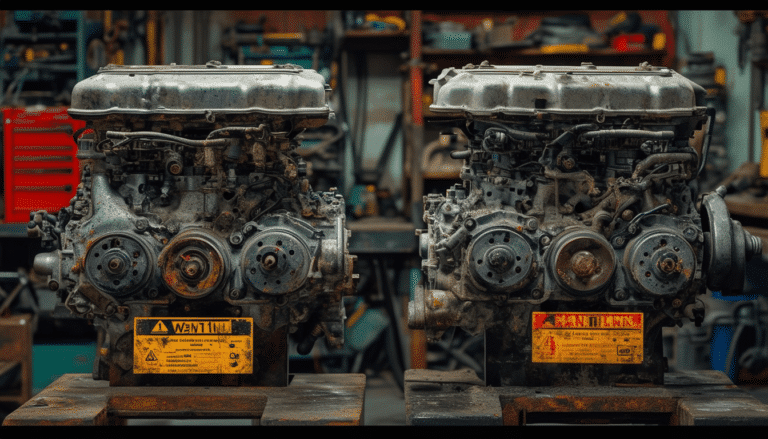Participation of the community in fuel savings campaigns
The participation of the community in fuel saving campaigns is fundamental to drive significant changes in energy consumption and promote more sustainable practices. By involving citizens, not only is a greater awareness achieved regarding the importance of energy efficiency, but also a collective response to current environmental challenges. Community initiatives foster collaboration, raise awareness, and unleash a transformative potential that benefits both individuals and the environment.
The involvement of the community is essential for the success of fuel saving campaigns. By integrating citizens into the planning and execution of these initiatives, not only is greater environmental awareness achieved, but also effective change in energy consumption habits. This article examines the key aspects of community participation in these campaigns and their inherent benefits for all involved.
The importance of citizen participation
Citizen participation in the formulation of environmental policies ensures that fuel saving initiatives reflect the needs and concerns of the community. Without the voice of citizens, measures that do not adequately address local challenges are likely to be implemented. Studies have shown that communities involved in decision-making are more likely to adopt sustainable practices and support policies that promote energy saving.
Benefits of involving the community
Involving the community in energy efficiency projects brings multiple benefits. Some of the most important are:
Environmental awareness and education
The active participation of citizens fosters an environment of learning and environmental awareness. The implementation of workshops, talks, and educational activities allows community members to understand the importance of reducing fuel consumption and acquire practical tools to achieve it.
Strengthening social fabric
Fuel saving campaigns provide an excellent opportunity for citizens to come together and work as a team. This not only strengthens the community in terms of social networks but also generates a sense of belonging and commitment to the common good.
Incentives for the use of renewable energy
When communities are involved in policy design, there is a greater likelihood of implementing incentives for the use of renewable energy. This can include subsidies or educational programs that facilitate the transition to sustainable energy solutions.
Success stories in community participation
There are numerous cases where community participation has proven effective. Programs like Mass Save in Boston have involved citizens in the planning of energy saving initiatives. Through legislation that allows cities to set building standards without fossil fuels, solid foundations for a more sustainable future have been created.
Legal and regulatory aspects
Legal aspects play a crucial role in promoting citizen participation in fuel saving campaigns. The establishment of regulations on gas emissions and fuel consumption is essential to create a framework that encourages communities to participate and take action.
Global trends and the role of technology
Globally, significant efforts are being made to improve energy efficiency and reduce fuel consumption. Technology plays a central role, offering solutions to monitor and reduce energy use. Tools like mobile applications and digital platforms allow communities to closely track their fuel consumption and adopt more sustainable practices.
Partial conclusion on awareness and education
Awareness and education about fuel saving are crucial in the pursuit of a greener future. Through initiatives like World Energy Saving Day, the aim is to inspire communities to join the fight against climate change and adopt more responsible habits. Increasing citizen participation in these campaigns is essential to achieve significant goals towards energy sustainability.
The opportunity to create real change is in the hands of the communities, so it is vital that all citizens get involved and collaborate on the path towards a more efficient and sustainable use of resources.
The participation of the community in fuel saving campaigns is essential for creating a more sustainable environment. Through the active collaboration of citizens, the impact of initiatives aimed at reducing energy consumption can be maximized. Awareness and education on the responsible use of energy resources are key aspects to motivate more people to act in favor of saving and efficiency.
Campaigns that involve the community not only allow the transmission of information but also the exchange of experiences and best practices. By working together, citizens can share their achievements and challenges, creating a sense of belonging and commitment towards a common goal: the reduction of fuel consumption. This fosters the creation of support networks and the dissemination of efficient techniques, such as the use of renewable energy and eco-friendly driving practices.
Moreover, community participation in the development of public policies is essential to ensure that local needs are considered. Collaboration between citizens, governments, and organizations can lead to the implementation of incentives for the use of clean energy and stricter regulations on carbon emissions. These actions are vital for shaping a future where respect for the environment is a priority.
In summary, community involvement in fuel saving not only contributes to the preservation of the environment but also strengthens the social fabric. Together, goals that initially seemed unattainable can be achieved, driving a cultural shift towards sustainability and energy efficiency.





